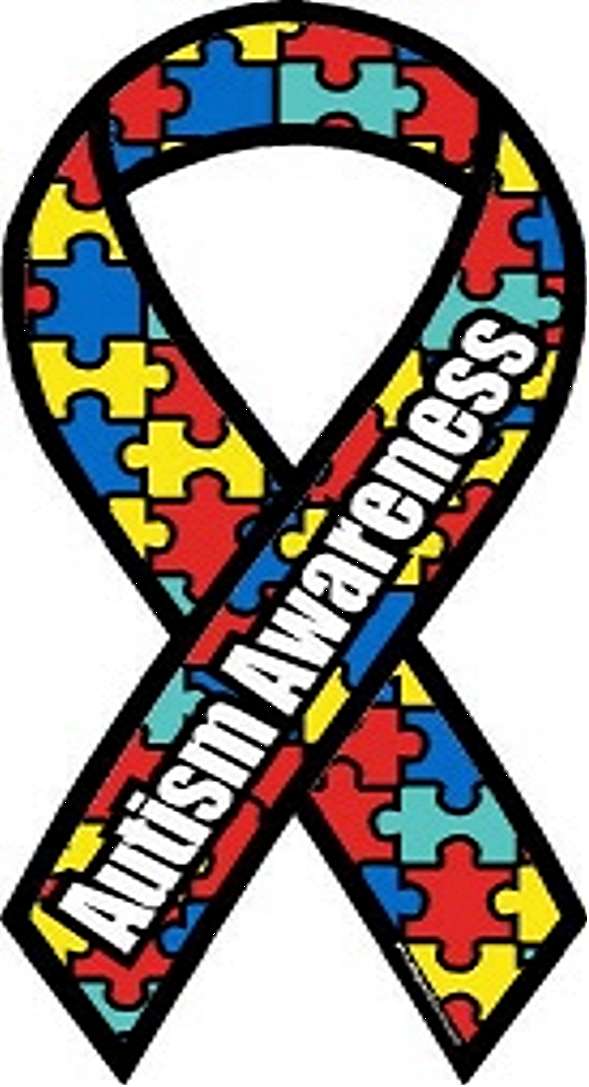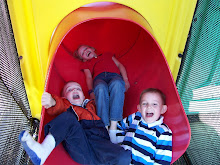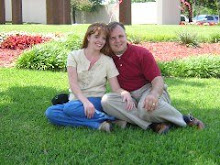 This time last year I really had no idea what autism was.
This time last year I really had no idea what autism was.
I didn't know that:
- Autism often strikes boys more often than girls – roughly four times more common in boys. With statistics being 1 in every 150 children that makes it 1 in every 94 males.
- One in every 150 children born in the US has autism (per the CDC report). It is estimated approximately 1 million in the US have this disorder.
- A new case of autism is diagnosed nearly every 20 minutes
There are 24,000 new cases diagnosed in the U.S. per year - The economic impact of autism is more than $90 billion and expected to more than double in the next decade.
- Autism receives less than 5% of the research funding of many less prevalent childhood diseases. There is no medical detection treatment, or cure for autism
(Source: http://www.talkaboutcuringautism.org/autism/latest_autism_statistics.htm)
As I quickly learned - for many of the children this means that a trip to the grocery store might be a torturous nightmare. The sound of an air conditioner might seem like standing beside a jet engine. The feel of a pair of pants on their legs would feel like constant sandpaper scratching their legs. That making eye contact is an unbearable request. Answering questions might not be possible and social interaction doesn't come naturally.
Autism covers a vast range of varying degrees. While some students may have obvious signs of autism - others don't. And in the past I may have considered a misbehaving child just that - but now I know . . . and every child has the benefit of my doubt. These sweet children live in a world where overstimulating experiences surround and bombard them constantly. I have learned so much - not only from the children but the parents of these sweet children - who are grappling at such a young age with such a individualized disability.
The following is a non-comprehensive list - but a good start of some possible symptoms of autism. Also - http://www.autismspeaks.org/ has amazing resources and an invaluable video section to help learn the signs of autism. EARLY INTERVENTION is the best possible hope for a child with autism. Per the autismspeaks website:
In clinical terms, there are a few “absolute indicators,” often referred to as “red flags,” that indicate that a child should be evaluated. For a parent, these are the “red flags” that your child should be screened to ensure that he/she is on the right developmental path. If your baby shows any of these signs, please ask your pediatrician or family practitioner for an immediate evaluation:
No big smiles or other warm, joyful expressions by six months or thereafter
No back-and-forth sharing of sounds, smiles, or other facial expressions by nine months or thereafter
No babbling by 12 months
No back-and-forth gestures, such as pointing, showing, reaching, or waving by 12 months
No words by 16 months
No two-word meaningful phrases (without imitating or repeating) by 24 months
Any loss of speech or babbling or social skills at any age
If you are still reading - bless you . . . one last thing:
People with autism process and respond to information in unique ways. In some cases, aggressive and/or self-injurious behavior may be present. Persons with autism may also exhibit some of the following traits.
Insistence on sameness; resistance to change
Difficulty in expressing needs; uses gestures or pointing instead of words
Repeating words or phrases in place of normal, responsive language
Laughing, crying, showing distress for reasons not apparent to others
Prefers to be alone; aloof manner
Tantrums
Difficulty in mixing with others
May not want to cuddle or be cuddled
Little or no eye contact
Unresponsive to normal teaching methods
Sustained odd play
Spins objects
Inappropriate attachments to objects
Apparent over-sensitivity or under-sensitivity to pain
No real fears of danger
Noticeable physical over-activity or extreme under-activity
Uneven gross/fine motor skills
Not responsive to verbal cues; acts as if deaf although hearing tests in normal range.
Autism is a complex developmental disability that typically appears during the first three years of life. The result of a neurological disorder that affects the functioning of the brain, autism impacts the normal development of the brain in the areas of social interaction and communication skills. Children and adults with autism typically have difficulties in verbal and non-verbal communication, social interactions, and leisure or play activities.
(Source: http://www.sashasrecovery.com)













0 leave me a note!:
Post a Comment